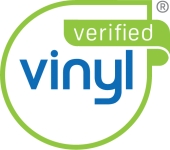Manufacturing as the backbone to economic recovery
The PVC industry is capable of helping Europe overcome the current economic crisis and achieve the competitiveness goals set by the EU for 2020. Particiapants at the Vinyl Sustainability Forum 2013 discussed how this can be achieved as well as the role Turkey can play in the future.
PVC is still hot, still one of the most widely used plastics in the world. Nevertheless, difficult economic times have taken their toll on the industry in Europe. According to recent market figures presented by Henry Warren from HIS Chemicals, the construction sector’s downturn has had deep negative impact, shrinking margins and putting Europe in a risky position compared to fast-developing economies such as China, Brazil, India or Mexico. However, he recognised “Europe’s stamina” should eventually help the PVC sector pull through by focusing on areas such as sustainability and innovation.
Similarly, the European Union’s Director of DG Enterprise Gwenole Cozigou explained that “the EU needs a strong industrial base but this has not always been the case. The current economic crisis has been a wake-up call.” He highlighted the need for manufacturing to be “the backbone” of our economy, especially when taking into account that about 80 percent of research and development comes from this sector.
In the words of Cozigou, “the PVC industry has a great role to play” in light of the current EU 2020 strategy which must be supported by three key pillars: innovation, skills and sustainability. He noted the need for an appropriate policy framework to maintain a “healthy manufacturing sector which can be competitive with the rest of the world.” VinylPlus is seen as one of the few successful voluntary agreements in Europe and he said he can only hope it can maintain its position as a leader “capable of spreading the word to other sectors. You have surpassed your promises and we wish you all the best.”
Turkey, host of the 2013’s Vinyl Sustainability Forum, is certainly one of the countries where the PVC market is currently thriving largely due to a growing need for this material in the construction and building sector. As defined by Reha Gur, Vice-President of the Turkish Plastics Manufacturers Association (PAGDER), the driving forces behind the country’s booming economy include the current economic stability and favourable investment climate, its strategic location close to a large number of important markets and the work of a dynamic private sector.
“Turkey has a plastics market capable of reacting very quickly to meet the needs of our industry, the demand of the Turkish people and also from the countries buying our products. At the same time, our growing population means that internal consumption will go up in the coming years, which offers great opportunities for the PVC sector,” noted PAGDER’s Vice-President. The most important PVC applications for the Turkish market are pipe and fittings followed by profiles, film and sheet, then wire and cable.

